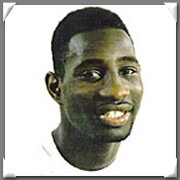If you have been following our socia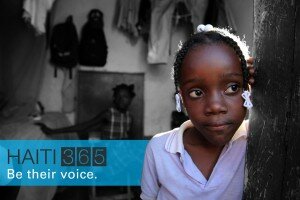 l media channels lately, you may be asking yourself what is this #Haiti365 stuff? It is a good thing you are reading our blog today because we are about to tell you exactly why we are talking about this and why HandsOn Network love this campaign.
l media channels lately, you may be asking yourself what is this #Haiti365 stuff? It is a good thing you are reading our blog today because we are about to tell you exactly why we are talking about this and why HandsOn Network love this campaign.
For the second anniversary of the Haiti earthquake, UNICEF USA wanted to show the country’s resilience and bring to light the daily challenges Haitian people still face daily. UNICEF USA decided to solve their desire through the use of social media to bring attention back to Haiti.
UNICEF USA brought the voices of Haiti’s youth to the attention of viewers through their Haiti365 Conversation project. Haiti365 has become a unique forum for viewers to respond to children’s questions about various topics such as gender equality, education, and Justin Bieber. UNICEF believes that youth are central to the recovery of Haiti, and through this project they can bring current issues to the world’s attention.
How did this project get started?
Last summer, UNICEF selected a group of young people to attend a high level summit on youth at the United Nations. For most of the Haitian youth who attended the summit, it was their first time ever visiting the United States.
The children had many questions for the General Assembly and the United Nations Round Table discussion on climate change about the state of their country and its recovery.
After the children addressed the United Nations, they had questions for their international peers. That is where the Haiti365 conversation comes into action.
How can you get involved?
Interested viewers can visit the Haiti365 website to join the conversation. Visitors to the website have the option of listening and responding to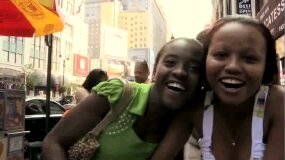 one or more of the 12 questions posed by Haitian youth. Those asking the questions are either children in the range of 9 to 11 years old or young adults 19 to 22 years old.
one or more of the 12 questions posed by Haitian youth. Those asking the questions are either children in the range of 9 to 11 years old or young adults 19 to 22 years old.
Viewers have the option of responding to the videos by text or video recording. Viewers also have the option of asking a peer in Haiti a question of interest. UNICEF USA will also send out text messages with questions from Haitian youth that can be answered by subscribers. Those who respond to the questions also have the option of responding in Creole or English depending on preference.
This campaign is a great way to get the conversation about Haiti’s recovery started. Who knows the impact that your question or answer can make on the future! UNICEF’s campaign is a great way to raise awareness for the country of Haiti. Please join us in bringing attention to the conversation; your participation will make a huge impression especially on the children of Haiti!
About UNICEF:
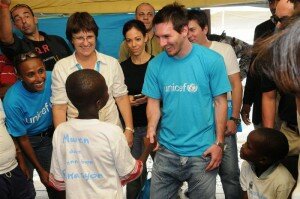 UNICEF has saved more children’s lives than any other humanitarian organization in the world. Working in more than 150 countries, UNICEF provides children with health and immunizations, clean water, nutrition, education, emergency and disaster relief, and more. The U.S. Fund for UNICEF supports UNICEF’s work through fundraising, advocacy, and education in the United States.
UNICEF has saved more children’s lives than any other humanitarian organization in the world. Working in more than 150 countries, UNICEF provides children with health and immunizations, clean water, nutrition, education, emergency and disaster relief, and more. The U.S. Fund for UNICEF supports UNICEF’s work through fundraising, advocacy, and education in the United States.
UNICEF is at the forefront of efforts to reduce child mortality worldwide. There has been substantial progress: the annual number of under-five deaths dropped from more than 12 million in 1990 to 7.6 million in 2010. But still, 21,000 children die each day from preventable causes. Our mission is to do whatever it takes to make that number zero by giving children the essentials for a safe and healthy childhood.

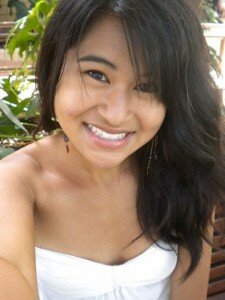 Today’s post comes from Cher Hale, a student and activist in Las Vegas, Nevada.
Today’s post comes from Cher Hale, a student and activist in Las Vegas, Nevada. Today is the worldwide launch of inaugural Peace Corps month celebrating the
Today is the worldwide launch of inaugural Peace Corps month celebrating the 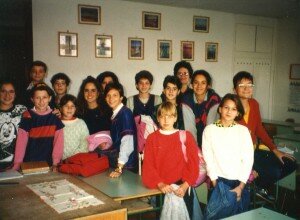 I had speculated on Hungary in my studies, but I didn’t know at that point how easily I would fall for the beauty of the Hungarian spirit.
I had speculated on Hungary in my studies, but I didn’t know at that point how easily I would fall for the beauty of the Hungarian spirit.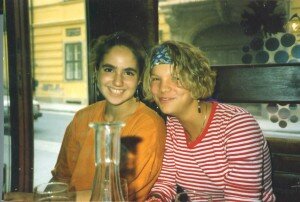 Imagine a country where the only supermarket was called “SUPERMARKET,” where there were no brands to choose from, no choices. All the “DEPARTMENT STORES” had the same kinds of coats in one season in the same styles and in the same colors… No room to express- no way to interpret art, no superficial way, anyhow, to just be different.
Imagine a country where the only supermarket was called “SUPERMARKET,” where there were no brands to choose from, no choices. All the “DEPARTMENT STORES” had the same kinds of coats in one season in the same styles and in the same colors… No room to express- no way to interpret art, no superficial way, anyhow, to just be different.
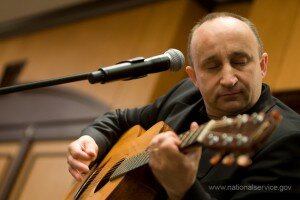 By Reverend Mark Farr, Faith-Based Initiatives Director, HandsOn Network
By Reverend Mark Farr, Faith-Based Initiatives Director, HandsOn Network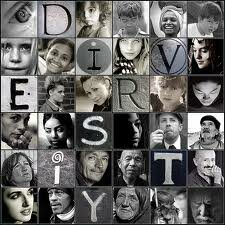
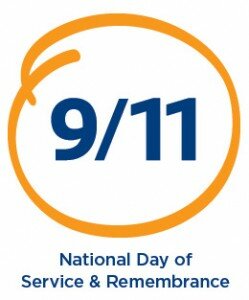
 by Emily Blaylock,
by Emily Blaylock, 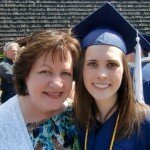 In high school I became accustomed with the reality that I would be on my own for continuing onto college. I had good grades and potential academic scholarships on the horizon, but I knew they would not be enough to cover the skyrocketing costs of college tuition. Yet just weeks prior to high school graduation, I received a scholarship that not only offset tuition costs, but also the costs of: books, technology, transportation, and housing. I consider myself blessed and am still overwhelmed with gratitude for this scholarship.
In high school I became accustomed with the reality that I would be on my own for continuing onto college. I had good grades and potential academic scholarships on the horizon, but I knew they would not be enough to cover the skyrocketing costs of college tuition. Yet just weeks prior to high school graduation, I received a scholarship that not only offset tuition costs, but also the costs of: books, technology, transportation, and housing. I consider myself blessed and am still overwhelmed with gratitude for this scholarship.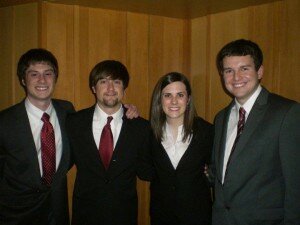 receiving this scholarship, each one of my barriers to college completion was alleviated. Prior to this, I came to recognize each impending barrier as I planned out my college career. I was trying to work out my schedule to take on two part-time jobs, coordinate with friends to carpool to class, pulling my resources to borrow books, and finding the nearest libraries to use their computers. Because of Kenneth Ford, a businessman in rural Oregon and his wife, Hallie, an educator, believed in the investment of a continuing education, I was the recipient of one of their scholarships. They invested in me through providing an education, in order that I may invest myself in my community.
receiving this scholarship, each one of my barriers to college completion was alleviated. Prior to this, I came to recognize each impending barrier as I planned out my college career. I was trying to work out my schedule to take on two part-time jobs, coordinate with friends to carpool to class, pulling my resources to borrow books, and finding the nearest libraries to use their computers. Because of Kenneth Ford, a businessman in rural Oregon and his wife, Hallie, an educator, believed in the investment of a continuing education, I was the recipient of one of their scholarships. They invested in me through providing an education, in order that I may invest myself in my community.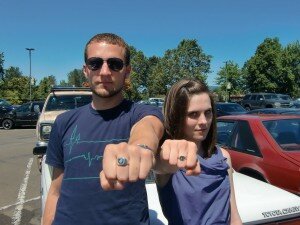 While I never had to fully realize my barriers to college completion, I am aware that these hindrances are vast, and they are many. In fact, for the first time in the 21st century, the current generation of college-aged Americans will be less educated than their parents due to the immense barriers faced in obtaining their educational goals. Fewer than 46% of students at 4-year universities complete their degree within 6 years and only 3 out of 10 students attending community colleges complete their 2-year associate degree within 3 years.
While I never had to fully realize my barriers to college completion, I am aware that these hindrances are vast, and they are many. In fact, for the first time in the 21st century, the current generation of college-aged Americans will be less educated than their parents due to the immense barriers faced in obtaining their educational goals. Fewer than 46% of students at 4-year universities complete their degree within 6 years and only 3 out of 10 students attending community colleges complete their 2-year associate degree within 3 years.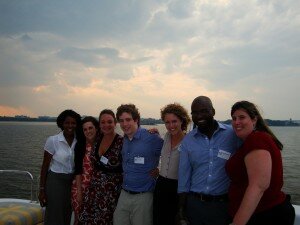
 by Jay S. Winuk, Co-founder, Vice President, MyGoodDeed, 9/11 National Day of Service and Remembrance, President, Winuk Communications, Inc.
by Jay S. Winuk, Co-founder, Vice President, MyGoodDeed, 9/11 National Day of Service and Remembrance, President, Winuk Communications, Inc.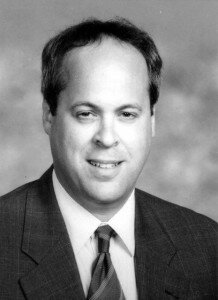 My life changed forever on that sunny September 11 morning in 2001. My brother Glenn Winuk, a partner at the large law firm Holland & Knight LLP, was murdered by the terrorists who attacked our nation by flying planes into the Twin Towers of the World Trade Center in New York. Situated just a block and a half from the site, Glenn helped evacuate his law offices, then raced toward the South Tower to participate in the rescue effort. He died when that building collapsed. Glenn’s partial remains were recovered about six months later, a borrowed medic bag by his side.
My life changed forever on that sunny September 11 morning in 2001. My brother Glenn Winuk, a partner at the large law firm Holland & Knight LLP, was murdered by the terrorists who attacked our nation by flying planes into the Twin Towers of the World Trade Center in New York. Situated just a block and a half from the site, Glenn helped evacuate his law offices, then raced toward the South Tower to participate in the rescue effort. He died when that building collapsed. Glenn’s partial remains were recovered about six months later, a borrowed medic bag by his side.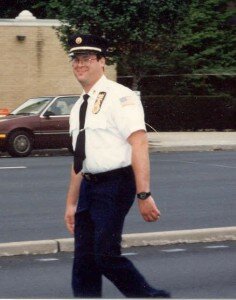 or almost 20 years Glenn was a volunteer firefighter and EMT in our home town of Jericho, NY. He had also served as a fire commissioner and as an officer of Engine Company 2, and was highly decorated. Specially certified in building collapse rescue training, no one was more prepared to race into those towering infernos than my kid brother, dead at 40.
or almost 20 years Glenn was a volunteer firefighter and EMT in our home town of Jericho, NY. He had also served as a fire commissioner and as an officer of Engine Company 2, and was highly decorated. Specially certified in building collapse rescue training, no one was more prepared to race into those towering infernos than my kid brother, dead at 40.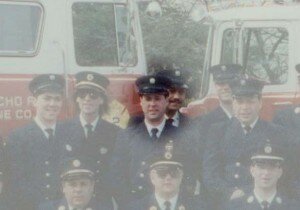 Engaging in service or good deeds on the anniversary each year in honor of those who perished or rose to help is truly an extraordinary phenomenon. Millions of people from all 50 states and countries all over the world now mark September 11 in service to others, with acts small and large. The ways that people participate are countless, creative and meaningful. All who visit our web site at
Engaging in service or good deeds on the anniversary each year in honor of those who perished or rose to help is truly an extraordinary phenomenon. Millions of people from all 50 states and countries all over the world now mark September 11 in service to others, with acts small and large. The ways that people participate are countless, creative and meaningful. All who visit our web site at 